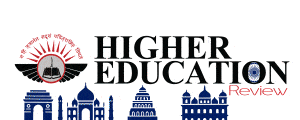Ericsson and Telecom Sector Skill Council set up Center of Excellence to upskill Students on Next Generation Technologies
 Ericsson and Telecom Sector Skill Council today announced the launch of a Center of Excellence (CoE) at Delhi Skill & Entrepreneurship University (DSEU). The CoE will train students on 5G and emerging technologies along with job placements post the completion of the selected module by the student. Around 300 students will receive the training in the first year of the program.
Ericsson and Telecom Sector Skill Council today announced the launch of a Center of Excellence (CoE) at Delhi Skill & Entrepreneurship University (DSEU). The CoE will train students on 5G and emerging technologies along with job placements post the completion of the selected module by the student. Around 300 students will receive the training in the first year of the program.
The roll out of 5G networks in India, the rapid adoption of smartphones and IoT devices in the country as well as the boost in the manufacturing sector have led to the creation of new skill requirements in the telecom sector. Ericsson together with TSSC is looking at addressing this gap by providing worldclass training and skill development to students in addition to providing career opportunities in the telecom sector.
The modules being offered to students include training to be a 5G network engineer, technical training for handheld devices and for IOT Devices/Systems as well as line assembly of telecom products. The industry approved training modules include theory lessons as well as hands on practical training for the students in the Skill Labs set up in the CoE.
Arvind Bali, CEO, Telecom Sector Skill Council marked the occasion stating “TSSC is on a mission to enhance the baseline skills for telecom professionals and aspirants across India. With the invaluable support of Ericsson, we have been able to establish a first-of-its kind Centre of Excellence for telecom in Delhi towards fulfilling this objective.
The CoE is designed to maximize the learning potential of the local youth with a keen focus on inclusivity and technical skill development. We are standing at the beginnings of a new India and look forward to develop the potential of our great nation’s youth.”
Nitin Bansal, Head of Ericsson India and Head of Network Solutions for Southeast Asia, Oceania and India, Ericsson says “This initiative will help bridge skills gap in the industry while providing opportunities for underserved students to build a career in the telecom sector in India. Industry - Academia partnerships will go a long way in fulfilling the skill gaps in the sector as well as creating a skilled workforce that will boost the telecom eco-system in the country and ensure the build out of a strong digital infrastructure in the country. Ericsson has been a partner to India’s telecommunication sector for over 120 years and this CoE is another example of our unwavering commitment.”
Ericsson’s educational initiatives in India include providing financial support to hundreds of meritorious girls from underprivileged sections of society who are pursuing technical education.
As part of its Connect To Learn initiative, Ericsson has been running 40 centers across the country to provide ICT and soft skills training to underprivileged youth across the country to boost their employability. Furthermore, to stimulate student’s interest in technology and provide digital skills including coding, programming and robotics at an early age, Ericsson has set up 15 Robotic Labs in the country.
Through Ericsson’s flagship program Connect to Learn, 400,000 children and young adults in 36 countries have been provided with access to digital learning and skills development programs.
Ericsson’s technology is critical to the digital transformation of society and forms the backbone of sustainable development, but to meet global challenges and realize opportunities across countries, technology needs to be scaled and Ericsson’s experience in driving eco-systems within and across industries, and in society is critical to achieve this.
The Ericsson-TSSC CoE in Delhi is an example of this commitment towards creating robust eco systems by creating a trained workforce in India.

